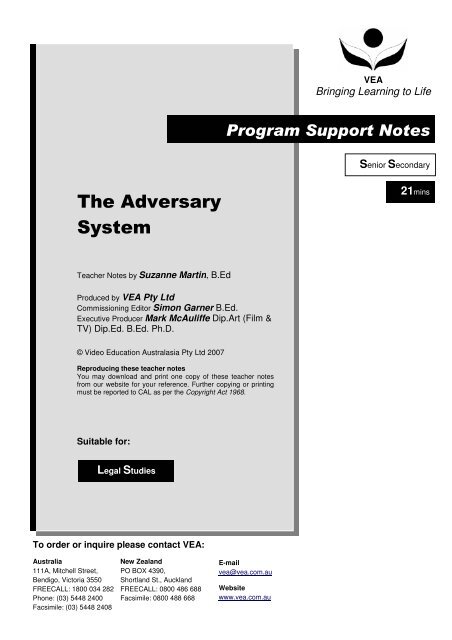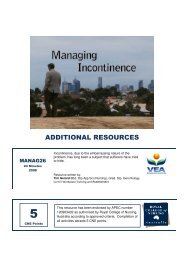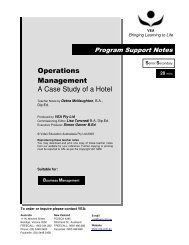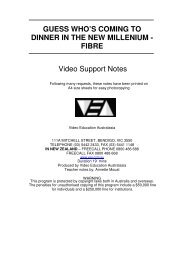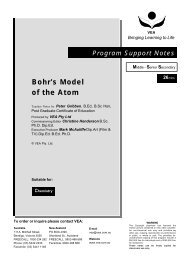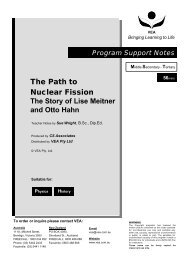The Adversary System - VEA
The Adversary System - VEA
The Adversary System - VEA
You also want an ePaper? Increase the reach of your titles
YUMPU automatically turns print PDFs into web optimized ePapers that Google loves.
<strong>The</strong> <strong>Adversary</strong> <strong>System</strong>Student Worksheet:Before Viewing the Program1. Investigate the difference between a criminal and civil dispute. Who and what do they involve?2. What makes an outcome fair and just?3. <strong>The</strong> adversary system is only one system of trial that has been used throughout the centuries. Inpairs, using the following websites research other modes of trial.• http://www.historylearningsite.co.uk/medieval_law_and_order.htm• http://en.wikipedia.org/wiki/Medieval_Inquisition• http://web.cn.edu/kwheeler/trial_ordeal.html- 3 -© Video Education Australasia Pty Ltd 2007Reproducing these teacher notesYou may download and print one copy of these teacher notes from our website for your reference. Further copying or printing must bereported to CAL as per the Copyright Act 1968.
<strong>The</strong> <strong>Adversary</strong> <strong>System</strong>16. Complete the following tableFeature <strong>Adversary</strong> <strong>System</strong> Inquisitorial <strong>System</strong>Role of the Judge • Independent third party • Takes a more active role in• Decides questions of law the caseand procedure• Determines which• Only asks questions forclarificationevidence and witnesses areto be examined• Questions witnessesRole of Legal Representation • Represents parties interests• Prepare and presents theparties case• Examination of witnessesCollection of evidence • All evidence, exceptwitness statements, arecollected by the partiesWitnesses • Witnesses must answer thequestions put to them bythe legal representative• Not as much need for legalrepresentation• May ask questions afterthe judge has completedhis/her questioning• All evidence andstatements are collectedand kept by the examiningjudge• Witnesses are allowed togive their version of whathappened withoutinterruptionPrior criminal record • Inadmissible • AdmissibleRules of Evidence • Strict rules apply• Mainly relies on oralevidenceRole of the parties • Responsible for thepreparation andpresentation of their case• Determine the issues thatare disputed and whichwitnesses are to be called• No strict rules• Relies heavily on writtenstatements• Parties respond to thedirections of the court inthe presentation of theircase- 8 -© Video Education Australasia Pty Ltd 2007Reproducing these teacher notesYou may download and print one copy of these teacher notes from our website for your reference. Further copying or printing must bereported to CAL as per the Copyright Act 1968.


